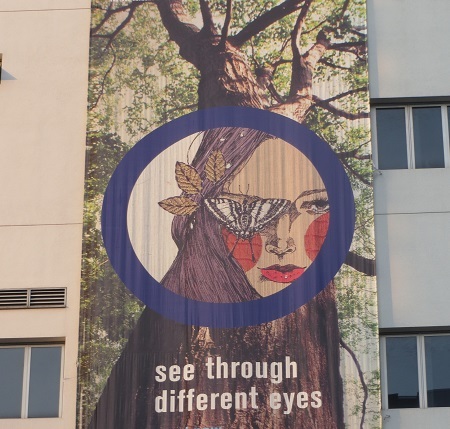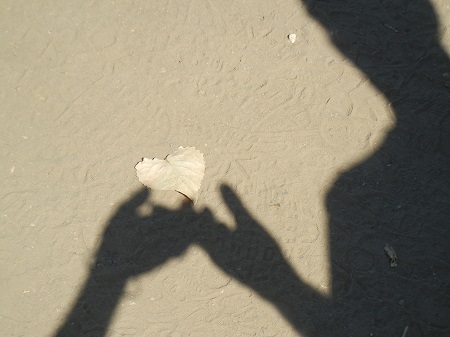I don't like to read newspapers. This is not a position easy to maintain, with friends teasing me for it, and with me frequently questioning my own judgment, since I teach and write, and should be "on top of what is happening," so to say...
The reason that I don't like to read or watch the news is that I am dismayed by the selection of news meant to update the public on "reality." Far from seeing it as objective reporting, while each article in itself may be professional and "objective," what I question is the overall landscape that is portrayed. I find the selection of news biased towards reporting what is "newsworthy," which in turn is filtered by criteria such as what is shocking, entertaining or designed to attract attention. This may be seen as a business necessity in the media, since to compete with so many stimuli, news reporters have to become louder and bolder than the rest. Yet at the same time, the contents are designed to engage the audience, and do it by inviting mostly feelings of anger, unfairness, revenge, despair, helplessness.
Even knowing all this, after going through a few pages or watching a TV screen while waiting at the doctor's office or in the airport I can't help thinking what a crazy world we are in, with people doing all these unbelievable, sometimes unacceptable things. Is that, I wonder, "reality"? There are some news outlets of course, like NPR, which engage your mind, cause you to reflect and lead you into new ways of thinking, but that's not mainstream.
There is a group of media professionals, led by Judy Rodgers, who some years ago started a movement to create awareness of the responsibility of the media in shaping what we call "reality." Images & Voices of Hope (IVOH) was founded in 1999 with a media dialogue among 180 professionals in Manhattan. The shared interest in the media's impact on society brought together three organizations: the Visions of a Better World Foundation, the Brahma Kumaris World Spiritual Organization, and the Center for Advances in Appreciative Inquiry at Case Western Reserve University. IVOH, with its tagline "Media as an agent of world benefit," began organizing conferences and events to draw attention to the tacit values underlying the contents and offering a pause to develop awareness, and develop better alternatives. They invited us to reflect: What is our role, as journalists, movie producers, marketing or communication professionals, bloggers, website creators, advertising professionals, show producers, even entertainment business, in shaping reality? What we talk about creates reality. Our words and images are flashlights pointing into corners, making things visible.
The color of our flashlight will influence the colors we see in that corner, and while we "illuminate" one area, we are also making many other parts of the room invisible -- through our selection. Once I heard that if you get on TV, you become real. The assumption behind this is that reality is what is on TV: is the corollary that all the rest is unreal?
Even if I try to regulate how much I expose myself to this "loud" messages from the outside, and even being aware that there are lots of good news and warm stories that don't make it through the filters, I cannot deny that the challenges of our world are overwhelming. Taken altogether, they are too big to be solved by one person, too big to be solved by one group, one community, or even one country. If we think of global peace, it even seems like the challenges are too big for the whole of humanity to solve them.
And then, the simplicity of a message from Mother Theresa lands in my lap. If you want peace in the world, go home and love your family, said Mother Theresa. With so many stories of pain, loss, fear, violence, mutual threats that create more fear and more pain in those who are not part of the decisions, what would we wish more than peace, in our life, to wake up happy and light, to have our hearts filled with joy, to see our children happy and safe? To go to bed unconcerned with what could happen, with what was, or with what almost happened.
Yes, I can promote world peace, just by going home and loving my family. This is a task fit for every single person on this planet, with no distinction of race, age, gender, culture or religion. Whether you have a family of one or of seventy, in your home or living somewhere else, you know who they are, and you know what you can do to love them. Think of this simplicity. The big words of world peace, at our fingertips.
Keywords: media news, NPR, IVOH, Brahma Kumaris, peace


